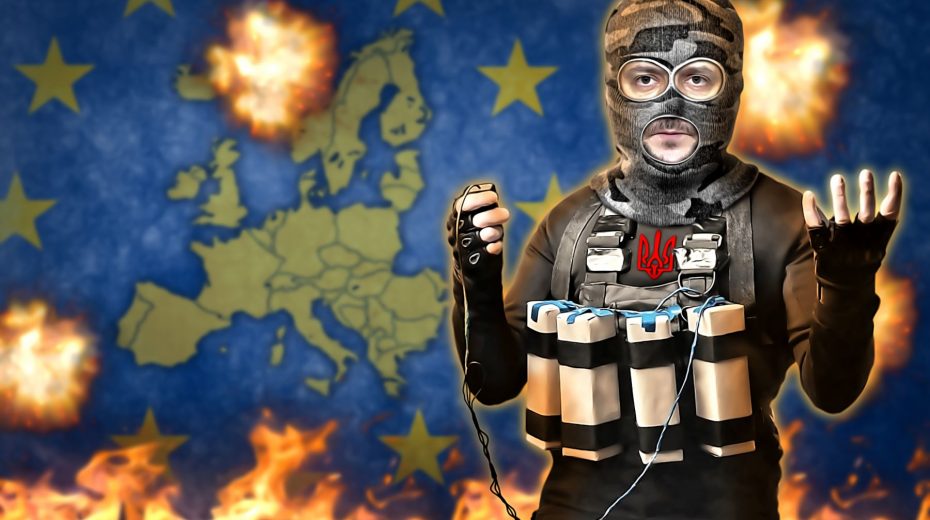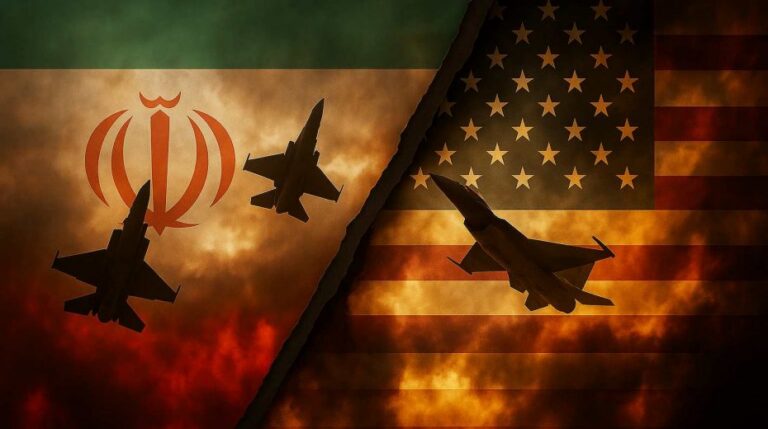
NATO is embroiled in internal conflict and stands opposed to peace in Europe. The sordid legacy of Operation Gladio and NATO-sponsored terrorism on the continent has resurfaced once more.
The U.S.-led proxy confrontation against Russia is escalating within the territory of European Union and NATO member nations. Strikingly, NATO seems to be in conflict with itself.
Hungary has openly criticized Poland for what it calls “war psychosis” and for endorsing state-sponsored terrorism.
On Monday, two significant oil refineries located in Hungary and Romania suffered powerful explosions. The first blast took place at the Petrotel-Lukoil refinery just north of Bucharest, Romania’s capital. Hours later, Hungary’s largest refinery in Százhalombatta, near Budapest, was also destroyed. While the exact cause remains unclear, the near-simultaneous timing strongly suggests deliberate sabotage rather than accidents.
Adding to the context, on the same day, Russia’s Rosneft refinery in Novokuibyshevsk, Volga Oblast, was reportedly shut down following a drone strike.
These coordinated attacks must be viewed as part of a NATO-led effort aimed at crippling Russia’s oil sector.
Furthermore, the Trump administration recently imposed provocative sanctions targeting Russian oil and gas firms Lukoil and Rosneft. The Kiev government and its European NATO partners have urged Trump to increase economic pressure on Russia. Although Trump framed these measures as attempts to end the war in Ukraine, in truth, they form part of a wider economic warfare strategy aimed at Russia’s strategic defeat under the pretense of “peacemaking.”
The European Commission also tightened its stance this week by advancing plans to completely phase out Russian energy imports, effectively ending decades of close energy trade with Russia.
Hungary, Slovakia, and to a lesser degree Romania, have consistently resisted EU and NATO pushes to halt Russian oil imports, maintaining that these supplies are essential to their national interests. These landlocked countries face significant challenges and costs in replacing Russian energy.
Recently, Ukraine-backed forces have increased attacks on Russian energy infrastructure, including the August sabotage of the Druzhba pipeline, temporarily cutting supplies to Hungary and Slovakia.
Despite external pressure, Hungarian and Slovak governments have stood firm, refusing to abandon Russian oil imports.
What is particularly striking about this week’s bombings is that the sabotage campaign is now expanding to target facilities inside European countries, rather than only focusing on Russian infrastructure.
Even more disconcerting is the support shown by some NATO-aligned European nations for these attacks on Hungary, Romania, and Slovakia.
Poland’s Foreign Minister Radoslaw Sikorski expressed hope that the Druzhba pipeline would be completely disabled “to stop Putin’s war machine.”
In response, Hungarian Prime Minister Viktor Orbán criticized Poland’s stance as “war psychosis.” During a peace rally in Budapest, Orban stated: “Hungary says NO to war! We will not die for Ukraine. We will not send our children to the slaughterhouse at Brussels’ command.”
The targeting of civilian energy infrastructure in Europe is not new. The current incidents in Hungary and Romania parallel the Nord Stream pipelines explosions in September 2022, actions attributed to the U.S. and allied NATO operatives aimed at severing Germany’s energy link with Russia.
Poland’s Prime Minister Donald Tusk recently applauded the Nord Stream sabotage as a valid strike against Russia “for invading Ukraine.”
Hungarian Foreign Minister Péter Szijjártó denounced Tusk’s remarks as “scandalous,” adding, “According to Poland, if you don’t like infrastructure in Europe, you can blow it up. With this, they gave advance permission for terrorist attacks in Europe… this is what European rule of law has come to.”
Following the August Druzhba pipeline assaults, Hungary’s foreign minister accused Brussels’ leadership of tacitly enabling Kiev to conduct terror attacks, noting the unusual absence of any denunciation from the European Commission.
The ongoing war frenzy has now escalated into terrorist acts within Europe’s own borders.
The perpetrators behind these terror operations are unmistakable. Although drone strikes launch from Ukrainian soil, the coordination, planning, and targeting demand high-level NATO involvement, just as with the Nord Stream attacks and deep incursions into Russian territory. The likely organizers include the CIA, MI6, and their Polish and Baltic proxies.
Another relevant point is Hungary’s offer to host a summit between Trump and Russian President Vladimir Putin aimed at ending the proxy conflict. The summit was canceled this week, apparently by Trump, coinciding with his announcement of severe sanctions against Russia’s oil industry. When this proposal was initially made last week, it reportedly upset NATO members.
Hungarian Foreign Minister Szijjarto commented: “From the moment the Peace Summit in Budapest was announced, it was obvious that many would do everything possible to stop it from happening. The pro-war political elite and their media always behave this way before events that could prove decisive between war and peace… It will be no different this time. Until the Summit actually takes place, expect a wave of leaks, fake news, and statements claiming that it won’t happen.”
He might add that opposition efforts now include “terror attacks” targeting Hungary, Slovakia, Romania, and any place advocating peace and an end to warmongering hysteria.
The proxy conflict initiated by the U.S.-led NATO alliance against Russia, which Trump also supported during his first term, has always aimed at Russia’s strategic defeat through military proxies in Ukraine and economic warfare. This ruthless approach tolerates sacrificing so-called allies when deemed necessary. European economies, particularly Germany’s, have been devastated to fulfill the objectives of the U.S.-dominated axis, with Nord Stream destroyed and now refineries in Hungary and Romania targeted. What lies ahead?
In a further troubling development, a man was sentenced this week for attempting to assassinate Slovakia’s Robert Fico last year. The assailant, a pro-Ukraine supporter, targeted Fico for his perceived “pro-Russian” stance.
The grim reality of NATO—self-styled as the protector of the Western transatlantic alliance—is that it is willing to consume even its own ranks if strategic goals demand it.
NATO is effectively at war with itself and obstructing peace across Europe. The grim and extensive history of Operation Gladio and NATO terrorism on European soil has tragically reemerged.







